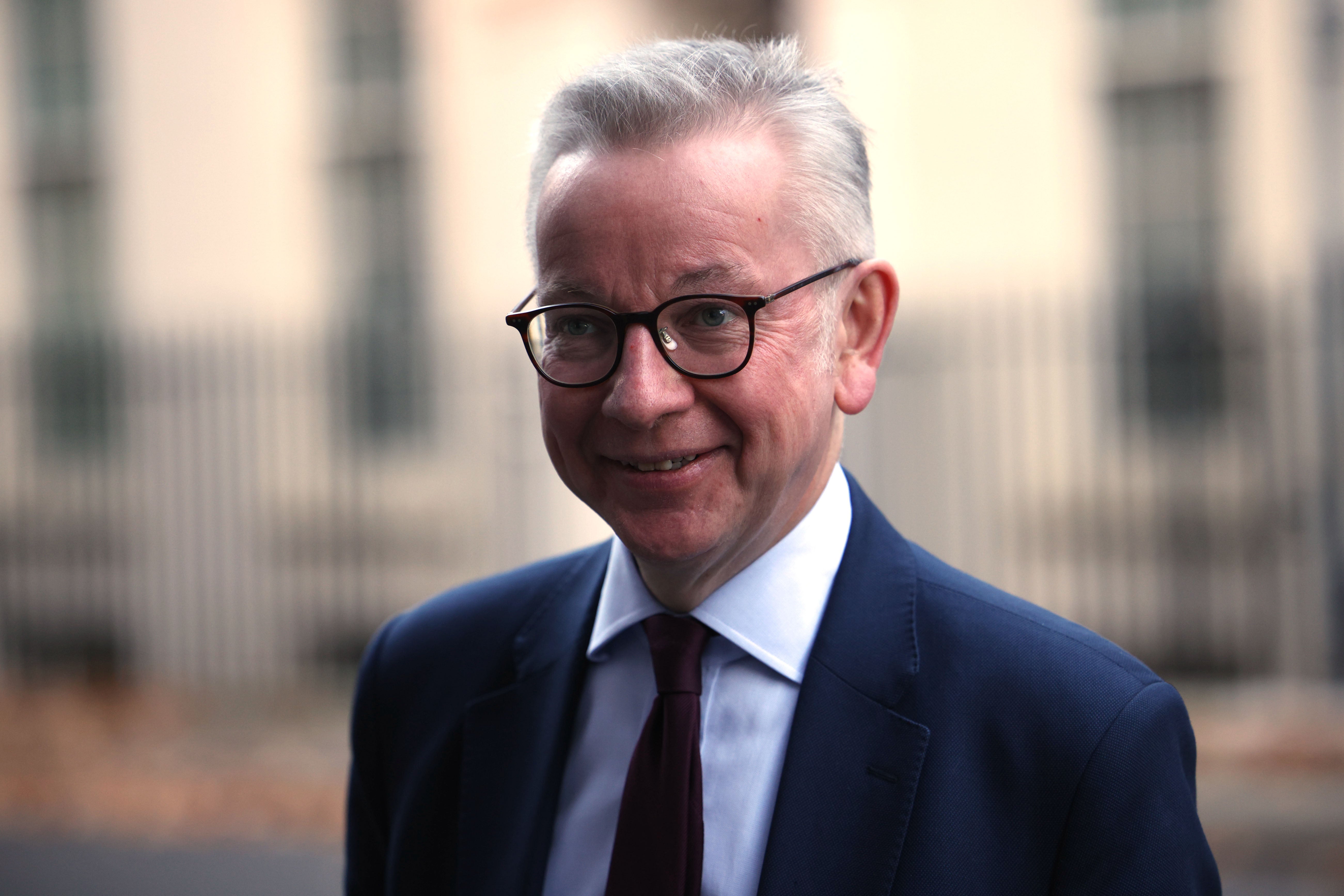Michael Gove is key to the Tories’ chances at the next election
If there is anyone who can straddle the concerns of voters who want more housebuilding and those who don’t want it in their back yards, it might be Gove, writes John Rentoul


Michael Gove is one of the few ministers who know how to make change happen in government; even if the latest change he has made seems to have been to abandon the Conservatives’ housebuilding target.
Yesterday, he announced that the target of building 300,000 new homes a year by the mid-2020s would be “advisory”. This has been mocked as a U-turn to avoid a Tory MPs’ rebellion, although it was described more temperately by Nick Gibb, the minister on media duty this morning, as an exercise in “parliamentary democracy”.
It is in fact more like a W-turn, because Gove has announced a retreat from the target before. In May, he said he was keen not to be bound by the “arithmetic” of housing targets. He was accused of betraying young people then, although some commentators gave him credit for being straight about an unrealistic target and for saying that “it’s no kind of success simply to hit a target if the homes built are shoddy”.
More confusingly, it was also Gove who reinstated the target in the meantime. A week after he was restored to office as levelling-up secretary when Rishi Sunak became prime minister, Gove was asked by Laura Kuenssberg of the BBC: “Is that still the target?” He said: “Yes.”
This may have been a reaction against the seven-week interregnum of Simon Clarke, who made it clear that he saw part of his job as levelling-up secretary as being to get rid of what Liz Truss called top-down, “Stalinist” targets.
So Schrodinger’s target is now both a target and not a target, in that it is advisory, but it was never likely that it could have been enforced on local councils that dragged their heels. But if there is any minister who can make sense of the to-and-fro, it is Gove. If there is anyone who can straddle the concerns of voters who want more housebuilding and those who don’t want it in their back yards, it might be Gove.
He is an activist minister and a good communicator. He responded immediately to the death of Awaab Ishak, the two-year-old boy from a mould-infested home in Rochdale, visiting the estate, castigating the housing association bosses and promising action.
He may even be able to persuade some voters that the government’s record on house-building is not as bad as its critics allege. If it had not been for the 300,000-a-year target, the recent record of more than 200,000 extra homes a year, even during the pandemic, might seem respectable – it is, after all, more than was achieved for all but three years of the last Labour government.
Gove is, after all, possibly the most consequential politician of his generation. Of all those who could claim to have ended Britain’s membership of the EU, he has the best claim. Nigel Farage may have played a significant role at the start, and Boris Johnson may have won the referendum campaign and delivered Britain’s actual departure, but it was Gove who made Johnson possible. Without Gove’s support for Brexit, Johnson might never have got to the point where he wrote his two articles to find out what he thought.
Three prime ministers kept Gove in government even though they might have preferred to do without him. After Gove had delighted teachers and parents enough at education, David Cameron still made him justice secretary, where humane reforms were started even if Gove didn’t have time to finish them. Theresa May kept him out until after the 2017 election, when she needed all the help she could get.
He proved imaginative and green at the Department for Environment, Food and Rural Affairs (Defra). Even Boris Johnson kept him on as a trouble-shooter at the Cabinet Office, despite Gove’s disloyalty which had scuppered Johnson’s 2016 leadership bid. Only the day before he announced his own resignation as prime minister did Johnson allow his real feelings to show, sacking Gove as levelling-up secretary (“Are you resigning?” “No, Mikey, mate, I’m afraid you are.”).
To keep up to speed with all the latest opinions and comment sign up to our free weekly Voices Dispatches newsletter by clicking here
That seemed to be that. Gove’s long and varied ministerial career appeared to have drawn to an end. There was speculation about the editorship of The Times, where Gove had been a columnist. But Tony Gallagher, the editor of The Sun, was appointed the new editor of The Times on 28 September, and Rishi Sunak, whom Gove had supported after a diversion via Kemi Badenoch, became prime minister a month later.
When his friend Ed Vaizey, a Tory former MP, suggested to Gove in a radio interview the other day that he would be joining the 14 Tory MPs who had announced that they would be standing down at the next election, Gove said no: “I am addicted to public service.”
I think there is a lot of truth in that. Gove remains one of the most able of the government’s ministers, and he enjoys a challenge. His Blairite obsession with delivering better public services is urgently needed by a prime minister who needs to show improvements in the short period before the election.
“I am someone who, if I’m fortunate enough to be in office, I don’t want to hang around,” Gove told Kuenssberg in that interview at the end of October. Sunak needs him, and needs him to get a move on.
Subscribe to Independent Premium to bookmark this article
Want to bookmark your favourite articles and stories to read or reference later? Start your Independent Premium subscription today.






Join our commenting forum
Join thought-provoking conversations, follow other Independent readers and see their replies
Comments